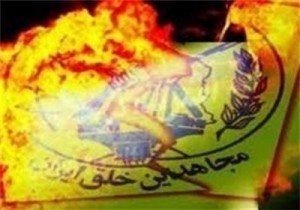 TEHRAN (FNA)- UK Immigration Minister Mark Harper said the country has not yet made any decision on giving asylum to the members of the Mojahedin-e Khalq Organization (MKO, also known as MEK, NCRI and PMOI).
TEHRAN (FNA)- UK Immigration Minister Mark Harper said the country has not yet made any decision on giving asylum to the members of the Mojahedin-e Khalq Organization (MKO, also known as MEK, NCRI and PMOI).�None of the 52 residents of Camp Ashraf and Camp Liberty who were previously settled in the UK have any current immigration status here,� Harper said according to a report by the Habilian Association.
�We have agreed to consider, exceptionally, their re-admission as refugees, subject to a UN High Commissioner for Refugees (UNHCR) assessment of each individual to ensure that none has been complicit in acts of terrorism or other activities incompatible with refugee status,� he added.
Harper also said that the UNHCR has submitted 17 assessments to the Home Office, adding that �no decision has yet been reached�.
Earlier in July 2013, a British life peer said in an interview with Habilian Association that western European states are not at all wishful of receiving MKO members �because of their recent past history�.
�Albania has agreed to take several hundred in theory, but in practice has only accepted seventy two,� Baroness Emma Nicholson added.
The last group of MKO terrorists at Camp Ashraf, now called Camp New Iraq, was evicted by the Iraqi government on September 11 to join other members of the terrorist group in the former US-held Camp Liberty, now called Camp Hurriya, near Baghdad International Airport where they are awaiting relocation to other countries.
The MKO, founded in the 1960s, blended elements of Islamism and Stalinism and participated in the overthrow of the US-backed Shah of Iran in 1979. Ahead of the revolution, the MKO conducted attacks and assassinations against both Iranian and western targets.
The group started assassination of the citizens and officials after the revolution in a bid to take control of the newly-established Islamic Republic. It killed several of Iran's new leaders in the early years after the revolution, including the then President, Mohammad Ali Rajayee, Prime Minister, Mohammad Javad Bahonar and the Judiciary Chief, Mohammad Hossein Beheshti who were killed in bomb attacks by the MKO members in 1981.
The group fled to Iraq in 1986, where it was protected by Saddam Hussein and where it helped the Iraqi dictator suppress Shiite and Kurd uprisings in the country.
The terrorist group joined Saddam�s army during the Iraqi imposed war on Iran (1980-1988) and helped Saddam and killed thousands of Iranian civilians and soldiers during the US-backed Iraqi imposed war on Iran.
Since the 2003 US invasion of Iraq, the group, which now adheres to a pro-free-market philosophy, has been strongly backed by neo-conservatives in the United States, who argued for the MKO to be taken off the US terror list.
The US formally removed the MKO from its list of terror organizations in early September, one week after Secretary of State Hillary Clinton sent the US Congress a classified communication about the move. The decision made by Clinton enabled the group to have its assets under the US jurisdiction unfrozen and do business with the American entities, the State Department said in a statement at the time.
By Fars News Agency
The Iran Project is not responsible for the content of quoted articles.










